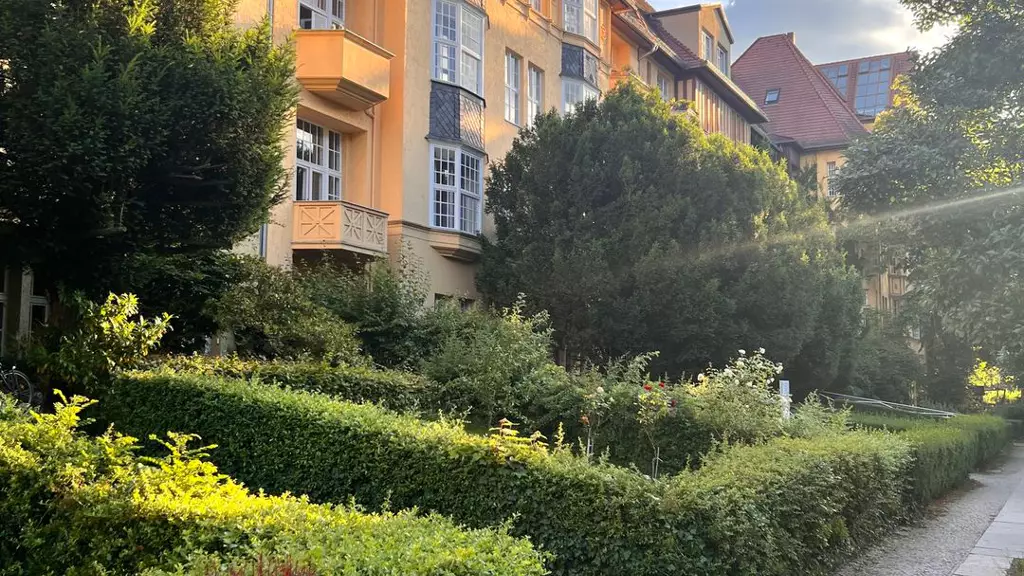Introduction – Understanding Real Estate Laws in Canada
Real estate laws in Canada form the backbone of every property transaction, ensuring fairness, transparency, and legal protection. These laws vary from province to province, but all share the goal of protecting property rights and regulating market activity. Whether you’re a first-time buyer, an experienced investor, or a foreign purchaser, understanding these rules is essential for a smooth and lawful transaction.
Thank you for reading this post, don't forget to subscribe!Why Real Estate Laws Matter
Protecting Buyers and Sellers
Real estate laws safeguard both buyers and sellers by outlining each party’s rights and responsibilities. They establish clear procedures for offers, contracts, and dispute resolution, preventing fraud and misrepresentation during transactions.
Ensuring Fair Transactions
By enforcing disclosure requirements, regulating agents, and standardizing contracts, these laws promote fair dealing in the property market. Buyers are assured of transparency, while sellers are protected from unfair claims or last-minute cancellations.
Regulating Foreign Investment
Canada uses real estate laws to manage foreign ownership levels and maintain housing affordability. These regulations include foreign buyer taxes, ownership restrictions, and reporting requirements to ensure investment aligns with national housing goals.
Overview of Real Estate Laws by Province
Federal vs. Provincial Regulations
While federal laws cover taxation, anti-money laundering, and foreign investment rules, provinces control property transfer processes, licensing of agents, and landlord-tenant regulations. This means the rules can differ significantly depending on location.
Quebec
Quebec’s real estate framework is based on civil law, unlike the common law system used elsewhere in Canada. Property transactions here follow unique procedures, and contracts are often bilingual to accommodate both French and English speakers.
British Columbia
BC enforces strict disclosure requirements and foreign buyer taxes in certain regions. The province also has strong tenant protection laws, which landlords must follow when renting properties.
Ontario
Ontario’s real estate market is governed by the Real Estate and Business Brokers Act. It has detailed rules for agent conduct, property transfers, and mortgage regulations, making it one of the most heavily regulated provinces.
Alberta
Alberta offers fewer restrictions for foreign buyers compared to other provinces. However, it has clear rules on land titles, property rights, and real estate agent licensing to ensure fair market operations.
Ownership Rights and Property Types
Freehold Ownership
This is the most common form of property ownership in Canada, granting the owner full rights to the land and any structures on it without time limits.
Leasehold Ownership
In leasehold arrangements, the buyer owns the building but leases the land from a landlord, often for decades. This type is more common in certain urban developments.
Condominium Ownership
Condo ownership provides rights to an individual unit along with shared ownership of common areas like lobbies, gyms, and parking facilities.
Co-Ownership
Co-ownership means two or more parties share legal ownership of a property. Each party’s rights are outlined in a legal agreement, often used in investment partnerships or family purchases.
Key Regulations for Foreign Buyers
Can Foreigners Invest in Real Estate in Canada?
Yes, but foreign investors must follow specific real estate laws, which may include higher taxes, reporting obligations, and ownership restrictions depending on the province.
Temporary Foreign Buyer Ban
Introduced in 2023, this measure restricts foreign ownership of certain residential properties for two years, with some exceptions for students, workers, and rural properties.
Property Purchase Process in Canada
Pre-Purchase Due Diligence
This step involves researching the property’s title, zoning rules, and legal status to ensure there are no hidden issues before making an offer.
Offer to Purchase
A formal written agreement that sets out the price, conditions, and timelines for the transaction. Both parties must sign for it to be legally binding.
Closing Process
The final stage where funds are transferred, legal documents are signed, and property ownership officially changes hands.
Montreal Short-Term & Weekly Apartments for Rent
Market Demand
Montreal’s cultural scene and business hubs create strong demand for short-term and weekly rental properties year-round.
Luxurious Montreal Apartments for Rent
High-end properties, like those featured at Luxurious Montreal Apartments for Rent, cater to professionals, executives, and international visitors seeking premium accommodation.
Licensing Rules for Short-Term Rentals
Real estate laws in Montreal require owners to obtain permits and comply with safety standards before offering short-term stays.
Rental Regulations in Canada
Tenant Rights
Tenants are entitled to safe housing, privacy, and protection from unlawful eviction under provincial tenancy laws.
Landlord Responsibilities
Landlords must maintain the property, follow rent increase guidelines, and respect tenant rights throughout the lease.
Eviction Rules
Evictions can only occur for legal reasons, such as non-payment of rent or property sale, and require formal notice.
Taxation Under Real Estate Laws
Land Transfer Tax
Payable upon purchase, this tax varies by province and sometimes by municipality.
Capital Gains Tax
Profits from selling a property that isn’t your primary residence are subject to capital gains tax.
Non-Resident Withholding Tax
Foreign sellers must pay a withholding tax on property sale proceeds, as required by Canadian law.
City Spotlight: Real Estate Rules in Popular Markets
Pointe-Claire
Suburban Pointe-Claire offers luxury living and follows Quebec’s property rules. See Pointe-Claire Apartments: Luxury & Comfort for examples.
Vancouver
A city with strict foreign buyer taxes and empty home levies. Explore Vancouver Apartments: Premium City Living.
Chilliwack
A growing market in BC with moderate property rules. Check Bright Chilliwack Rental Basement Suite.
Coquitlam
An expanding urban area with diverse investment opportunities. Learn more at Modern Apartments Coquitlam Braemar.
How to Invest in Real Estate in Canada Legally
Residential Investment
Buying homes or condos to rent or resell is the most common legal investment approach.
Commercial Property Investment
Investing in retail, office, or industrial spaces offers stable long-term rental income.
REITs
Real Estate Investment Trusts allow investors to own shares in income-producing property portfolios without managing the assets directly.
Small-Scale Real Estate Investments
Can I Invest $100 in Real Estate?
Yes, through fractional ownership platforms or REITs, small investors can legally participate in the property market.
How to Get a 10% Return on Investment
Flipping
Buying undervalued homes, renovating them, and selling at a higher price can yield double-digit returns.
High-Demand Rental Markets
Target cities with low vacancy rates for strong rental income.
Vacation Rentals
Tourist-heavy areas often command higher nightly rates, boosting returns.
Recent Changes in Real Estate Laws
2023 Foreign Buyer Restrictions
This federal law temporarily limits non-residents from buying certain residential properties.
Anti-Money Laundering Measures
Stricter reporting requirements now apply to large cash transactions and foreign-owned companies buying property.
How Real Estate Is Regulated
Role of Provincial Real Estate Councils
These bodies license and oversee real estate professionals to ensure compliance with provincial laws.
Licensing Requirements
Agents must complete accredited training and exams before practicing.
Can a Foreigner Get a Real Estate License in Canada?
Yes, but they must meet residency or work permit requirements set by the province.
Risks of Ignoring Real Estate Laws
Failing to follow real estate laws can result in fines, loss of property, or even criminal charges. Staying compliant protects your investment and reputation.
FAQS
1. Can foreigners invest in real estate in Canada?
Yes, foreigners can buy property in Canada, but real estate laws vary by province. Some regions have additional taxes or restrictions, and as of 2023, a temporary federal ban limits non-residents from buying certain residential properties, with some exemptions.
2. How can I invest in real estate in Canada?
You can invest by purchasing residential or commercial property, joining a Real Estate Investment Trust (REIT), or participating in fractional ownership programs. Understanding real estate laws is essential to ensure compliance with taxes, zoning, and ownership rules.
3. Can I invest $100 in real estate?
Yes. While $100 isn’t enough to buy property directly, you can invest through REITs or property crowdfunding platforms. These methods are regulated under Canadian real estate laws and securities legislation.
4. How to get a 10% return on investment in Canada?
Strategies include flipping undervalued properties, targeting high-demand rental areas, and operating vacation rentals in tourist hubs. All must comply with municipal licensing and real estate laws regarding rental operations.
5. What is the real property law in Canada?
Real property law in Canada covers the ownership, use, transfer, and leasing of land and buildings. It includes federal statutes, provincial acts, and local bylaws that regulate property rights and transactions.
6. What is the new law for buying property in Canada?
The Prohibition on the Purchase of Residential Property by Non-Canadians Act came into effect in January 2023. It temporarily restricts certain foreign buyers from purchasing residential property in Canada for two years.
7. How is real estate regulated in Canada?
Real estate is regulated at the provincial level by real estate councils or boards, which license agents and enforce ethical and professional standards. Federal laws also apply to taxation and foreign ownership reporting.
8. Can a foreigner get a real estate license in Canada?
Yes, foreigners can obtain a real estate license if they meet the specific provincial requirements, which may include residency status, work permits, and completion of accredited real estate courses.
9. Are short-term rentals legal in Canada?
Short-term rentals are legal but regulated differently across cities. Real estate laws often require permits, safety inspections, and compliance with zoning bylaws before listing on platforms like Airbnb.
10. What taxes do I need to pay when buying or selling property in Canada?
Common taxes include the land transfer tax, property tax, and capital gains tax. Foreign investors may also be subject to non-resident withholding tax under Canadian real estate laws.







